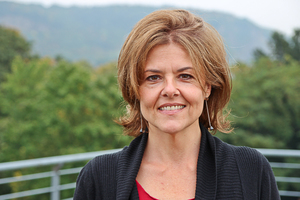Prof. Dr. Daniela Bifulco
Seconda Università degli Studi di Napoli
Curriculum Vitae
Daniela Bifulco studierte Rechtswissenschaften an der Universität Neapel (Federico II) und wurde an der Universität Trient mit einer Arbeit zu sozialen Grundrechten („L’inviolabilità dei diritti sociali“, Neapel 2003) promoviert. Sie hielt zahlreiche Vorlesungen und Vorträge zu den Themen Rechtsauslegung, rechtliche Ethik und richterliche Unabhängigkeit (unter anderem an der Deutschen Richterakademie in Trier, am Consiglio supremo della Magistratura in Rom, am Conseil Superieur de la Magistrature in Paris, an der York University in Toronto und an zahlreichen italienischen Universitäten) sowie zu den Themen Rechtsikonographie (unter anderem auf der dritten Biennale des China-Europe Forum in Beijing), Säkularismus, Hassreden und Holocaustleugnung. Sie war als Rechtsexpertin für den Europarat tätig und war Visiting Scholar an der Yale Law School und am Cegla Center for Interdisciplinary Research an der rechtswissenschaftlichen Fakultät der Universität Tel Aviv. Seit 2005 ist Daniela Bifulco Associate Professor an der Seconda Università degli Studi di Napoli, wo sie vergleichendes öffentliches Recht lehrt. Darüber hinaus ist sie Chercheuse associée am Institut des hautes études sur la justice in Paris.
Von Oktober 2015 bis Juli 2016 war Prof. Dr. Daniela Bifulco Fellow am Käte Hamburger Kolleg „Recht als Kultur“.
Forschungsprojekt
Religion as a new source of law?
My research aims to answer the following questions: how do secular democracies face the growing religious diversity and how does law react to a notion of religion becoming more and more mixed with the concept of culture? Should the traditional concept of “secular state”, as well as the traditional instruments relating to the constitutional treatment of religion, be rethought? Constitutional democracies are facing an unprecedented religious diversity. The changed circumstances in the religious phenomenon made it inevitable that law and the courts would modify the narrow understanding of “religion” that had characterized the early development of law. But courts, asked to determine what is a “religion” – and how it differs from the notion of “culture” – have struggled to define a satisfactory borderline between the two concepts, reversing their decisions on more than one occasion. These changes require developing a far more complex idea of religion than merely its equation with religious “doctrine”. Yet, this task – i.e. defining religion – goes beyond the principle of state neutrality in religious matters. Facing this sizable challenge, law shows different reactions, depending, obviously, on the legal culture of each country. If it is true that the state neutrality should serve to the purpose of protecting the secular principle, and thus the division between state and the churches, it is also true that courts often use the state neutrality principle as an alibi, an exit-option in order to avoid addressing problems (like the problem of defining “religion”, distinguishing it, if necessary, from the concept of “culture”), which appear to be too complex for the law. As a result, law has sometimes the tendency to relegate religion to sociological study and anthropology. But the evolutions of the religious phenomenon in secular and liberal states ask legal scholars to rethink the secular principle taking into account these evolutions, which are more and more blurring the distinction between “religion” and “culture”.
Publikationen (Auswahl)
- Immagini di giustizia (Images de la justice, by R. Jacob), translation from French, Turin: Giappichelli 2015, forthcoming.
- Il disincanto costituzionale. Profili teorici della laicità (“Constitutional Disenchantment. Theoretical Profiles of Secularism”), Milan: Franco Angeli 2015.
- Religioni secolari: istruzioni per l'uso (on the concept of “secular religion”). A proposito di due saggi di Kelsen e Dworkin, 2015, available at: www.costituzionalismo.it.
- Diritto e cultura in Israele (Law and the Culture in Israel, by M. Mautner), D. Bifulco and F. Cortese, translation from English and introduction, Milan: FrancoAngeli 2014
- Negare l'evidenza. Diritto e storia di fronte alla “menzogna di Auschwitz” (Holocaust Denial. History and the Law and the “Auschwitz Lüge”), Milan: Franco Angeli 2012.
- Chiudere i conti con la storia. Colonizzazione, schiavitù, Shoah (Peut-on réparer l'histoire?, by A. Garapon), translation from French and introduction, Milan: Raffaello Cortina editore 2009.
- Il giudice è soggetto soltanto al “diritto”. Contributo allo studio dell’articolo 101, comma 2 della Costituzione italiana (on judicial interpretation), Naples: Jovene 2008.
- Del Giudicare. Saggio sul rituale giudiziario (Bien Juger. Essai sur le rituel judiciaire, by A. Garapon), Translation from French and Introduction, Milan: Raffaello Cortina editore 2007.
- Deontologia giudiziaria. Dieci anni del codice etico della magistratura” (on judicial ethics), D. Bifulco, L. Aschettino, H. Epineuse, R. Sabato (eds.), Naples: Jovene 2006.
- L’inviolabilità dei diritti sociali (on fundamental social rights), Naples: Jovene 2003.


